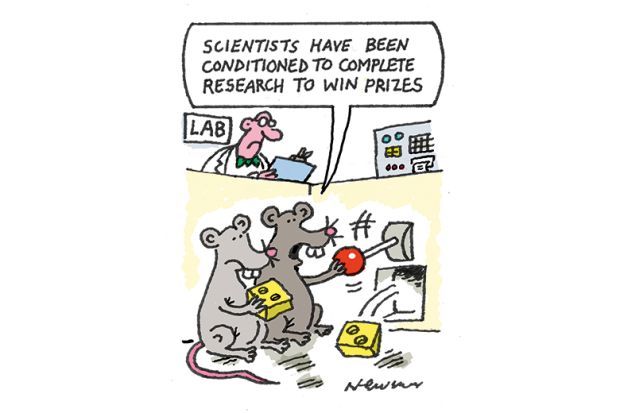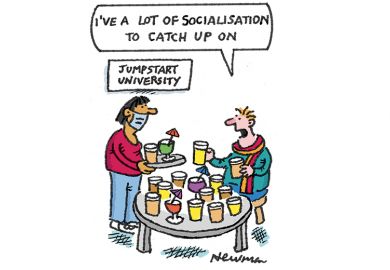
A new study has revealed the pulling power of prize-winning in research. It found that research areas associated with prize-winning scientists experience a boost in publications of 40 per cent and a third more citations in the decade after such awards are announced. The researchers, based at Northwestern University in the US and the Southern University of Science and Technology (SUSTech) in China, analysed the areas of researchers who won more than 400 science prizes awarded a total of almost 3,000 times between 1970 and 2007 and found that their topics attract almost 50 per cent more “star” scientists in the five to 10 years after the prize compared with comparable fields that are not associated with an award.
Two-and-a-half years after the “Varsity Blues” college admissions scandal broke, the first trial has ended with guilty verdicts for two parents, found to have spent several hundred thousand dollars to illegally win their children admission to high-status universities. Gamal Abdelaziz was convicted of paying $300,000 (£220,000) in bribes to win his daughter admission to the University of Southern California as a basketball player, and John Wilson was convicted of paying $220,000 to win his son entry to USC as a water polo star. Wilson also was accused of spending another $1.5 million in a bid to win his twin daughters entry to Harvard and Stanford universities. Most of the 57 parents and other alleged participants caught up in the scandal – including several corporate executives and two Hollywood celebrities – have already pleaded guilty. Andrew Lelling, the federal prosecutor who initiated the prosecutions in early 2019, called the trial outcome “a great statement against the abuse of extreme privilege”.
Campaigners against contract cheating in England claimed a victory as the Westminster government finally announced it was set to outlaw essay mills. The Department for Education said that it would introduce an amendment to the Skills and Post-16 Education Bill, which is currently working its way through Parliament, that would make it a criminal offence to “provide, arrange or advertise…cheating services for financial gain to students taking a qualification at any institution in England providing post-16 education, including universities”. It follows similar legislation in Australia, New Zealand, Ireland and some US states, which politicians and sector leaders previously said left England falling behind in the bid to stamp out the practice. Alex Burghart, the skills minister, said essay mills were “completely unethical and profit by undermining the hard work most students do”.
Murray Edwards College, Cambridge, the university’s last single-sex college, is to introduce “fertility seminars” that teach students they should not “forget” about having children in case it becomes too late. According to The Sunday Times, the classes have been brought in by Dorothy Byrne, the new president of Murray Edwards, who said that “fertility had become a forbidden subject”. According to Ms Byrne, a former head of news at Channel 4, she was not trying to scaremonger but wanted to “empower” female students. “Young women are being taught that they all have to do well in school, get a degree, be successful in their career and be beautiful,” she said. “The thing that is getting lost along the way is that you forget to have a baby, which I nearly did.”
The president of West Liberty University is facing calls to resign after being accused of plagiarism on at least four occasions. The board of governors at the West Virginia public university have been asked to act after W. Franklin Evans was found to have plagiarised at least four public speeches. Faculty members have also asked the faculty senate to hold a vote of no confidence in the president’s leadership. They told Inside Higher Ed that if action isn’t taken it demonstrates a “double standard” as students are asked to uphold a strict standard of no plagiarism in their own work and it would make it very difficult for the institution to enforce policies against it if the president was allowed to get away with copying others. Dr Evans said that he regretted the “lack of attribution in any speech or presentation that may have been given”. “It was never my intent to give the impression that those were my exact words, and I failed to identify where the material came from. For that, I am sorry,” he said.
Register to continue
Why register?
- Registration is free and only takes a moment
- Once registered, you can read 3 articles a month
- Sign up for our newsletter
Subscribe
Or subscribe for unlimited access to:
- Unlimited access to news, views, insights & reviews
- Digital editions
- Digital access to THE’s university and college rankings analysis
Already registered or a current subscriber? Login


